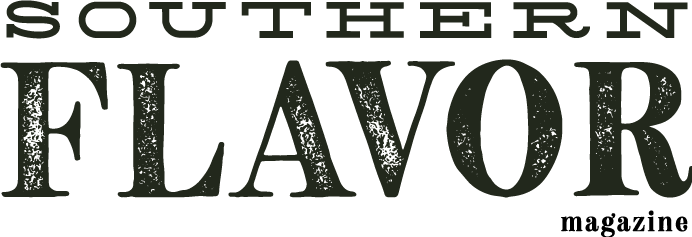A Long “Winter”
Harold’s Cabin is Among Restaurants Uncertain of the Future
By Denise K. James
Mere months ago, one could venture to Harold’s Cabin for a drink and a bite on any given evening and the mood was likely to invoke a different time: namely, Charleston in the 1930s, when the original Harold’s Cabin was just as neighborly and welcoming. Owned by Harold Jacobs and his wife, Lillian Breen Jacobs, the original Harold’s was, in the words of current partner and operating manager John Schumacher, “Charleston’s first bodega, with meats, cheeses and other odds and ends, tucked away in a Jewish neighborhood.”
Later on, in the 1950s, Harold and Lillian opened an even larger location, on Wentworth Street. Along with its trademark variety of foods, the new grocery location offered a lunch counter for patrons to enjoy a meal and talk with their friends. An impression was clearly made; even after Piggly Wiggly took over the space in 1968, there was still a “Harold’s Cabin” section in the store.
The modern iteration of Harold’s Cabin, open since Spring 2016, has always been one of Charleston’s most eclectic and worthwhile places to visit. Far from the hustle and bustle of the city’s touristy core, the unassuming building is a treasure-trove of cozy seating, a welcoming bar and an intimate rooftop overlooking the upper peninsula. Schumacher said that the restaurant, for many regulars, fits the psychological notion of a “third place” — where time is spent apart from the duo of home and work. He and the other owners wanted to create a spot that “provided a cool connection between the past and present.”
Prior to the restaurant closing due to COVID-19, I ventured there one evening to work on this story and enjoy dinner. I’d been to Harold’s Cabin before, but only for drinks, so I was excited to indulge in my first meal. The bar seemed like the ideal place to sit, and I promptly ordered the Salty Raccoon—its most iconic cocktail—to flank my glass of water. Though the cocktail menu shifts seasonally, this revered blend of tequila, rosemary, lime and house-smoked sea salt has always been available—patrons wouldn’t have it any other way. As I licked smoky salt and absorbed my surroundings, a local singer/songwriter serenaded the bustling bar scene. I asked to look at the menu and was immediately stumped at the bevy of tasty options.
“The concept of our menu has changed over the last four years,” Schumacher pointed out. “We changed it to what our patrons wanted.”
After studying the offerings as though a quiz would come later, I finally ordered the gnocchi with pork and mushroom ragout and pecorino cheese. It was delicious, a perfect late-winter meal. Patrons of Harold’s since 2016 treasure the restaurant’s culinary offerings of fresh, local produce, prepared in unique ways, and, more recently, a bit more for the meat-eaters, explained Schumacher, adding that the hangar steak, juicy burgers and my present gnocchi have all become beloved items. For those seeking a cocktail-friendly snack, the hush puppies and arancini fit the bill.
Fast-forward a few months after my yummy experience, and COVID-19 has changed Charleston’s food scene, as well as almost everything else. Restaurateurs, chefs, servers and patrons are left feeling adrift without Harold’s Cabin and other comforting places to feel at home away from home or to speak to friendly faces apart from a spouse, kid or neighbor—over the fence for safe distancing, of course. Schumacher and his partners have busied themselves giving back to the dining community of the Lowcountry and staying in touch with those in the industry as much as possible. Everyone’s breath remains in suspension for the future—when will a vaccine make it safe to go out again like the old days? And who will be left from the culinary world to provide such adventures?
“We’re trying to maintain dignity and grace the best we can and help people out the best we can,” Schumacher said recently during a phone call. “Regardless of whether we open again or not, a lot of restaurants won’t. You have to look inside yourself and do the right thing for people.”
For the Harold’s Cabin partners, “doing the right thing” has included myriad tasks, from reaching out to patrons to working with the Independent Restaurant Coalition, an organization created in Charleston to assist smaller eateries during the pandemic. Schumacher, a founding member, has been attending weekly Zoom meetings to brainstorm with others on “affecting change,” which includes setting up funds to stabilize independent restaurants.
What will these restaurants look like in the coming months or the year ahead? After the first quarantine of Spring 2020, some of us experienced changes in the few that managed to open: digital menus only; mandatory masks unless you’re lifting your fork to your mouth; and bar seating banished. As of press time, Harold’s Cabin remains closed, with Schumacher stating that he and the partners are still in “wait and see” mode.
“Does it make sense to reopen? The revenue isn’t going to be there right when you reopen; it takes time,” he noted. “I’m trying to stay in touch with my staff the best I can. We’re putting things on social media to stay relevant. Thankfully, we’re supported by the neighborhood.”
I feel like I speak for all of us in the Lowcountry in saying, please include us in that “neighborhood” of support — we all want the restaurants we know and love to return to the landscape, offering food, fellowship and a Salty Raccoon to toast the future with. Here's hoping that by the time this story reaches your hands, dear reader, it's possible.



